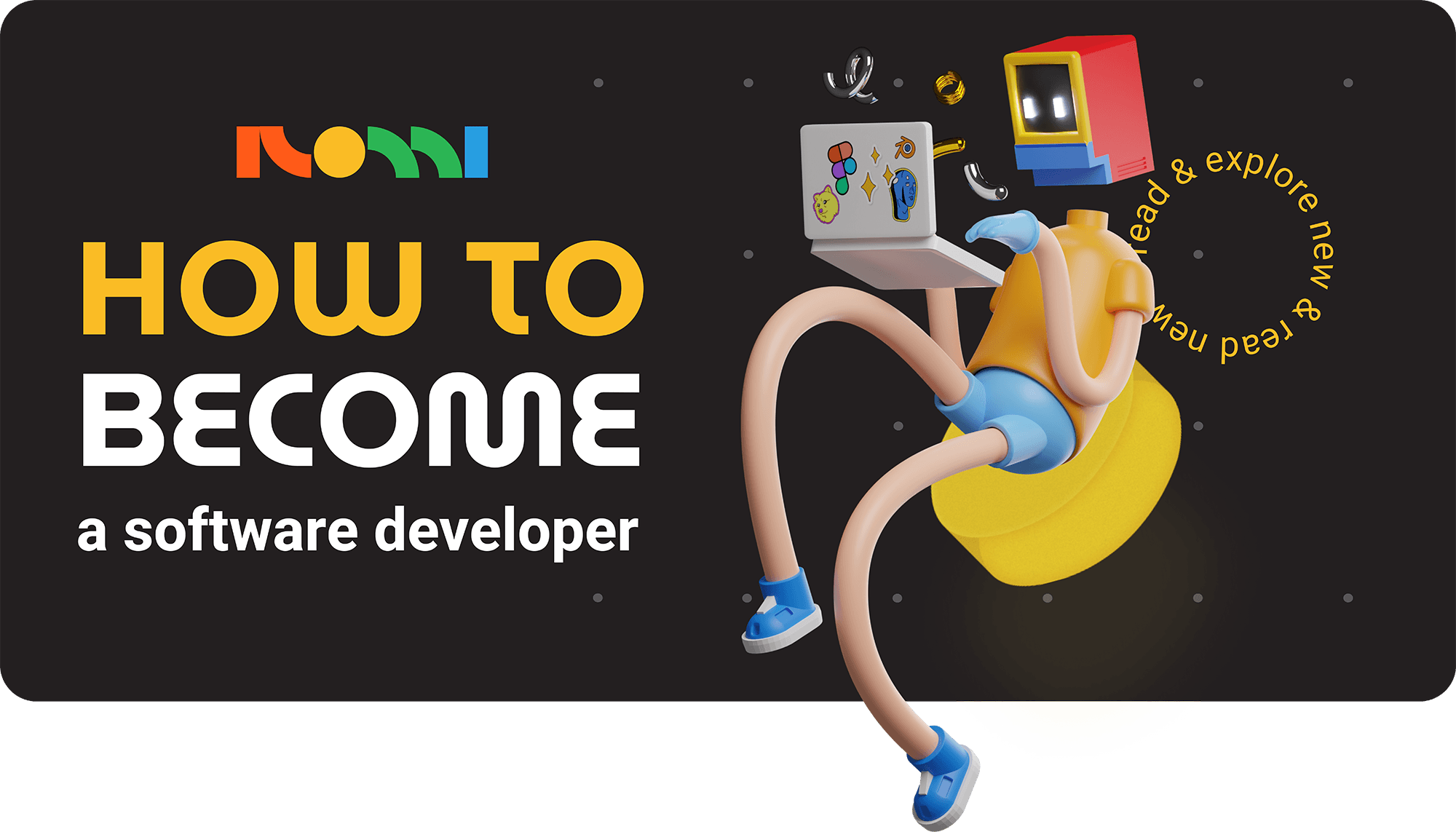
How to Become a Software Developer
Technology is solving tons of problems globally every day. A corporation may save thousands of workers' efforts by just providing them with software. That’s the reason for the high demand for software developers, who offer clever solutions to resolve people’s issues.
When we try to imagine a software developer, we typically think about a coder sitting in front of a screen while attempting to make sense of a matrix of flashing figures. However, developers are not just arithmetic prodigies with unbridled talent. This is a misconception that discourages many gifted people from studying programming out of concern that they might not be "smart" enough.

Undoubtedly, software development is one of the world's highest-paying professions that requires a lot of patience, continuous learning, and growth. But if you are passionate about the subject, willing to work hard, and eager to learn, you stand a good chance to succeed as a developer.
Becoming a software engineer usually implies 3 key steps:
■ Planning a career and receiving an education
■ Gaining experience and building a portfolio
■ Applying for jobs and breaking into the big time
This will definitely take some time but the result is well worth the effort.
Planning a career and receiving an education
An official degree or specialized training is typically suggested because software engineering is so scientific and technical in nature. A computer science major is the best college degree offered in terms of formal education. However, you are not required to devote four years to your studies. For individuals who choose to avoid the costly campus-based education, there are fortunately other options accessible.

The following are several different paths to becoming a software engineer:
■ Bootcamps
Without a computer science degree, you may still educate yourself and develop your portfolio with the help of a coding bootcamp. Students who participate in intensive bootcamps receive training and skills equivalent to that of a college graduate. Thus, less time will be spent learning theory, and more time will be spent developing a skill set that is useful.
■ Certificate programs
The majority of computer science certification programs are meant to boost your professional career. They might, however, also be used as a prerequisite for your bachelor's or master's degree. Various colleges may have different duration requirements, although they are often finished in a year or less. Because so many schools provide part-time, full-time, and distance learning courses, students benefit from flexible modules in the educational process.
■ Self-learning
You can still go the self-taught way if you don't have the money for a formal computer science degree or a bootcamp. You'll need to be very particular about your specialization, so pick a niche that you want to become an expert in first. Then gather the necessary materials, create a learning strategy, and put in the necessary time and effort.
Gaining experience and building a portfolio
It's possible that a typical computer science education won't provide you with all the practical experience you'll need. You may accomplish that through volunteer work, freelancing, or internships.
■ Volunteering
You may use your expertise or talents to volunteer at NGOs, organizations, and communities if you are just starting out in programming. This will provide you with the experience you need for your CV and help boost your career.
■ Freelancing
Freelancing is a profitable career route that may help you make twice as much money as a full-time employee. However, it's simpler said than done. A substantial time and financial investment, persistence, a strong work ethic, and a clientele base are necessary to launch a successful freelancing career.

■ Internship
An internship is one of the best ways to burst into the tech sector for a career in software development. As an intern, you will have a senior engineer as your mentor who will offer advice and support as you gain experience. A particularly strong internship program may even result in a reference letter or a full-time position for you.
Applying for jobs and breaking into the big time
Once you have done the above-mentioned things, you can start exploring employment prospects. Make a CV, build a portfolio of your works, create an eye-catching profile on several employment portals, and apply for the positions listed there. Making connections, using personal contacts, attending meetups, conferences, and seminars can all help you grow your network and will help you acquire some references for jobs or interviews. Be sure you’ll nail it!
Don’t forget to hone your soft skills
Software developers are no longer loners working in solitude. As a full-time developer, you will most probably work for a tech company alongside a team that includes designers, QA engineers, project managers, and executives. So, soft skills are crucial for professional growth even if coding, writing, and execution are still the main responsibilities of a software engineer.
The soft skills you’ll need include:
■ Communication
■ Problem-solving
■ Collaboration
■ Time management
■ Curiosity
■ Adaptability

Software development is among the most demanded skills. Do you have a creative mind and strong love for computers and technology? So maybe it’s the perfect moment to start a career. Good luck!
